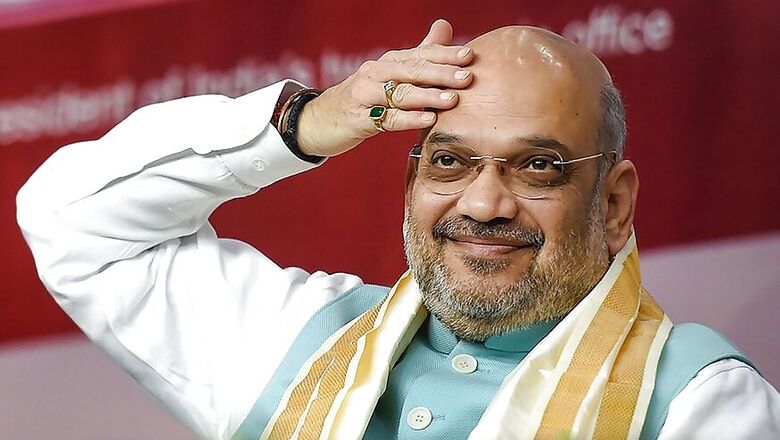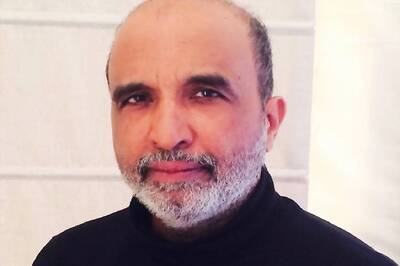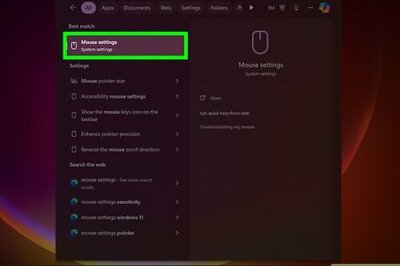
views
New Delhi: Ahead of the Citizenship Amendment Bill (CAB) being tabled in the Parliament, civil society organisations, student bodies and chief ministers of eight northeast states will meet Home minister Amit Shah in New Delhi on November 29 and 30.
The discussions are reportedly to be held with the intention to bring together various stakeholders on the same page about the contentious Bill on citizenship. According to sources, two-day long meetings will be spread over sessions of eight hours or more.
It is “difficult to predict” whether the meetings will review the recommendations and demands of the stakeholders for consideration in the Bill, BJP strongman in Assam Himanta Biswa Sarma told News18.
The CAB, which proposes to amend the original Citizenship Act of 1956, was passed in the Lok Sabha in January, but lapsed as the government did not table it in the Rajya Sabha. To become a law, a Bill must be passed by both the Houses of Parliament.
It seeks to grant Indian citizenship to non-Muslim refugees — Hindus, Jains, Christians, Sikhs, Buddhists and Parsis — from Bangladesh, Pakistan and Afghanistan if they have fled their respective countries due to religious persecution. It also proposes to reduce the mandated 11 years of residence in India for citizenship eligibility to six years.
The meetings with Home minister comes days after Meghalaya chief minister Conrad Sangma on November 22 met Shah in Delhi and discussed the “need for proper consultation and the need to engage with stakeholders”, to which Shah agreed. Sangma was asked to coordinate the two-day long meetings.
Organisations invited for discussions over the week include North East Students’ Organisation (NESO), All Bodo Students’ Union and student bodies from Meghalaya, Nagaland and Arunachal Pradesh, among others.
Although Shah had earlier assured that the revised Bill will be tabled only after consultation with stakeholders, north east India is again witnessing protests and shutdown over the controversial legislation.
BJP MP from Manipur Rajkumar Ranjan Singh on Thursday sought Manipur’s exemption from the purview of the CAB.
“People are apprehensive of this new citizenship law,” he said in the Parliament.
The All India United Democratic Front (AIUDF) from Assam along with other opposition parties Congress, Trinamool Congress, Communist Party of India (Marxist) etc pressed for an adjournment motion on these two issues on the first day of the winter session.
The opposition had also taken up the tabling of the Bill with Rajya Sabha chairman Venkaiah Naidu during the business advisory committee meeting held to discuss the agenda for the next week.
Meanwhile, NESO leaders called on Sangma in Delhi to discuss on Citizenship Amendment Bill. The delegation is submitting petition to PM Modi opposing the CAB.
Controversy erupted in Assam when the BJP-led state government recently rejected the final NRC published on August 31. Sarma supported the Centre and the BJP’s vision for passing the Citizenship Amendment Bill before a nationwide NRC exercise.
“I believe CAB is good for Assam. According to the statistics in hand, those who have been left out of NRC — if they continue to remain excluded, a number of constituencies would go to ‘others’. For the interest of indigenous Assamese, CAB is essential,” Sarma said.
The weekend meeting between stakeholders and Shah assumes significance as Sarma on Thursday also announced Assam government’s decision to table the district-wise figure of Hindu Bengalis excluded from the final NRC.
Citing that the Comptroller and Auditor General of India (CAG) has found “huge irregularities” in NRC, the minister also rejected the historic Assam Accord — the document that provides for the citizens list in the state to be updated and the basis for the state’s anti-immigrant struggle.
“Nobody was consulted before signing the Accord. Prafulla Mahanta was a signatory, so he is committed to the Accord. Himanta Biswa Sarma did not sign it, so I am not committed for it. The Assam assembly has also not endorsed it. There was no proposal in the assembly to accept the Accord,” he said.
Although both the NRC and the citizenship Bill serve different purposes, the communal undertone of the Bill and the geographic criteria of migration from Bangladesh, a Muslim-majority country, in the NRC has created confusion.
The saffron party’s politics on the Bill has built uncertainty among its allies in the northeast, with many terming it as sectarian.
Assam, Manipur, Nagaland and Meghalaya have repeatedly witnessed unrest ever since the Bill was introduced in 2016. Shah’s visit to Mizoram in October was met with protest marches and demonstrations by multiple civil society organisations.
In Assam, the All Assam Students Union (AASU)’s chief advisor, Samujjal Bhattacharya, maintained that his outfit “would not tolerate the Bill at any cost and continue to protest against it”. He also slammed Sarma for rejecting the Assam Accord saying the BJP had stated the full implementation of the accord in their vision document.
The main opposition to the Bill in Assam comes due to its nature vis-à-vis Clause 6 of the Assam Accord.
According to the Accord, those who came to the state “after January 1, 1966 (inclusive) and up to March 24, 1971” shall be considered as foreigners. They will be deleted from the electoral rolls and will have to register themselves as foreigners.




















Comments
0 comment